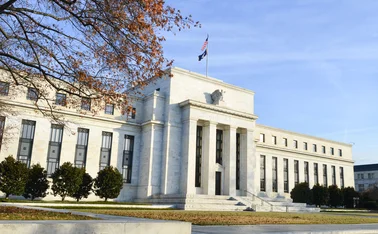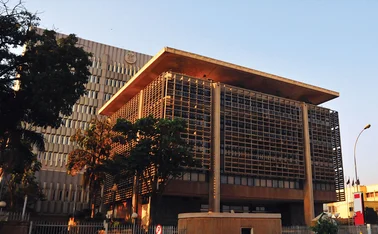
Nigeria cash changeover hangs in balance after court order
Supreme Court orders deadline be suspended as economy reels from after-effects of programme

Nigeria’s top court has intervened to suspend a changeover to a new banknote series, amid widespread distribution problems that have spread chaos throughout the economy.
The Central Bank of Nigeria’s (CBN) deadline for exchanging old banknotes for redesigned denominations had been set for February 10. Ahead of the swaps time limit expiration, however, the country’s Supreme Court issued an order to suspend the invalidation of old naira notes.
The court’s decision stemmed from a suit filed by three state governors to restrain the central bank from invalidating old currency notes. The country’s attorney-general immediately objected to the order in a filing asking the Supreme Court to dismiss the lawsuit on grounds of jurisdictional conflict.
Last December, the CBN redesigned three denominations of the local currency, the 200, 500 and 1,000 naira notes. Circulation commenced on December 15 with an initial deadline of January 31 to swap old notes for new. Following a public outcry, governor Godwin Emefiele extended the timeline for handing in old naira notes to February 10.
The replacement programme has brought on economic woes across the retail and corporate sectors. Muda Yusuf of Lagos-based Centre for the Promotion of Private Enterprises tells Central Banking: “The currency swap has been creating a lot of challenges for quite a number of citizens, particularly citizens who are in the trade and commerce sector.”
Yusuf says the new notes are in short supply and have “slowed down the velocity of transactions” in the majority of retail sectors, which are highly cash dependent.
It is global best practice for central banks to redesign banknotes regularly, to fight counterfeiting and integrate new features. The last such exercise took place in Nigeria around 16 years ago. As such, Dipo Fatokun, a former director of banking and payments systems department at the CBN, described the policy as “timely”.
Fatokun, who was unable to identify the precise challenge confronting cash distributors, suggested “the banks have some logistics issues”.
A state-owned printer, the Nigeria Security Printing and Minting Company, has been producing the new cash. Recounting his experience as a former central banker, Fatokun said “it has always been difficult” for the note printers to meet demand. But, he added, “if the [notes replacement programme] had been in the pipeline for some time, then that constraint would not have been there”.
The banknotes redesign officially aimed to tackle a shortage of money supply in the financial system. But the public perception is that it was intended to check electoral fraud in the general elections due February 25.
Yusuf is of the opinion the currency swap policy has done more harm to the retail economy than any benefits from curbing vote-buying by politicians. He recommendd anti-financial crime agencies work to curtail electoral malpractice via technology.
After the Supreme Court’s intervention, it remains unclear whether the CBN will go ahead with its plans to nullify old notes. The regulator is yet to make a statement on its position. A spokesperson declined to comment.
The Supreme Court will next sit on February 15 for the main hearing on the case filed by the three state governors. In the meantime, the Nigerian press has been reporting commercial banks are shutting their doors due to intermittent attacks on banking facilities across the country.
On February 8, the International Monetary Fund’s resident representative in Nigeria called on the CBN to “consider extending the deadline” for note swapping.
In its Article IV consultation, released the same day, the fund also encouraged the CBN to tighten the policy rate in a bid to avoid “de-anchoring of inflation expectations”.
Only users who have a paid subscription or are part of a corporate subscription are able to print or copy content.
To access these options, along with all other subscription benefits, please contact info@centralbanking.com or view our subscription options here: http://subscriptions.centralbanking.com/subscribe
You are currently unable to print this content. Please contact info@centralbanking.com to find out more.
You are currently unable to copy this content. Please contact info@centralbanking.com to find out more.
Copyright Infopro Digital Limited. All rights reserved.
You may share this content using our article tools. Printing this content is for the sole use of the Authorised User (named subscriber), as outlined in our terms and conditions - https://www.infopro-insight.com/terms-conditions/insight-subscriptions/
If you would like to purchase additional rights please email info@centralbanking.com
Copyright Infopro Digital Limited. All rights reserved.
You may share this content using our article tools. Copying this content is for the sole use of the Authorised User (named subscriber), as outlined in our terms and conditions - https://www.infopro-insight.com/terms-conditions/insight-subscriptions/
If you would like to purchase additional rights please email info@centralbanking.com
Most read
- BIS’s Zhang Tao on why Asian central banks favour a broader policy mix
- Central bank of the year: Central Bank of Brazil
- Central banks prepare for the rise of AI







